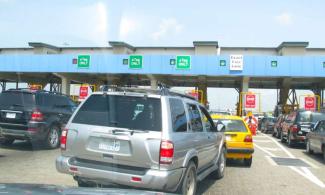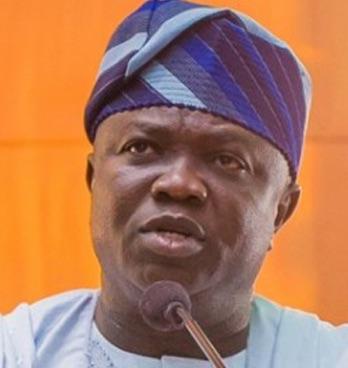
Advocacy group, Socio-Economic Rights and Accountability Project (SERAP), has urged Mr Akinwunmi Ambode, governor of Lagos State, to to immediately reverse the toll charges at the Lekki-Epe Expressway and Lekki-Ikoyi Link Bridge toll gates, both managed by Lekki Concession Company (LCC).SERAP made the call in a statement signed by Mr. Adetokunbo Mumuni, its Executive Director.
Advocacy group, Socio-Economic Rights and Accountability Project (SERAP), has urged Mr Akinwunmi Ambode, governor of Lagos State, to to immediately reverse the toll charges at the Lekki-Epe Expressway and Lekki-Ikoyi Link Bridge toll gates, both managed by Lekki Concession Company (LCC).SERAP made the call in a statement signed by Mr. Adetokunbo Mumuni, its Executive Director.
The new charges were introduced on 1 February. Under the new rate regime cars using the Lekki-Epe Expressway now pay N200 as against N120 previously paid, Sports Utility Vehicles (SUV) pay N250 as against N150, while commercial buses pay N150 from N80. Motorcycles now pay N100.
At the Lekki-Ikoyi Link Bridge, the rate for saloon cars was hiked to now N300 from N250; SUV, minivans and light trucks now pay N400 from N300 while mtorcycles are charged N200. The organization warned that failure to reverse the toll charges will make the Lagos State government appear to be undermining public interest, democratic values, accountability and opportunities for participation.

“It’s time for Ambode to ensure and maintain a balance between the needs of the citizens and residents of Lagos State and the Lekki Concession Company. The authorities should respect and protect the right of protesters to demonstrate against the hike in toll charges and to voice their opinion," said SERAP.
The organization added that international human rights treaties ratified by Nigeria and the country´s own constitution obligate the government to protect freedom of expression, association and peaceful assembly.
It branded the latest increase in toll charges at the Lekki-Epe Expressway and Lekki-Ikoyi Link Bridge toll gates as unfair and unacceptable, as it conflicts with the commitment of the Lagos State government to provide basic public services to citizens and residents.
"It seems the agreement between the Lagos State government and the Lekki Concession Company is no longer serving the needs of citizens and residents,” reasoned SERAP.
The organization called on the Lagos State government to consider abolishing toll charges in the face of the country's harsh economic climate rather than allow LCC to bleed residents by placing profits above public interest. SERAP warned that unless the situation is satisfactorily resolved in the public interest, the Lagos State government will be viewed as beholden to special interests.
“The hike shows how profit motive can conflict with public motive. Accountability principles require the government to ensure that the activities of the Lekki Concession Company align with the policies and activities of governance and that the company is not allowed to exploit its monopoly position to charge excessive rates.
“It is the duty of the Lagos State government as custodian of the public trust, to take the public interest into account in assessing the activities of the Lekki Concession Company. The government is further obligated to prevent unnecessary and unjustified harm to the public trust and interests,” it said.
It contended that the hike was introduced with disregard for pre-decision accountability, which demands consultation with stakeholders and post-decision accountability, prescribes remedial measures for victims of the injustice.
“Citizens cannot be mere recipients or purchasers of government services; they must also participate in the act of governance itself. The shift from a participatory role to a consumer role changes the role of individuals vis-a-vis their government from one of the citizens to one of consumers. This itself erodes the ideals of a democratic society.
“States contravene their human rights obligations when they fail to take appropriate measures or to exercise due diligence to prevent, punish, investigate or redress the harm caused by acts by private persons or entities," SERAP posited.